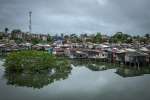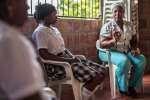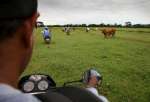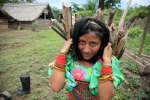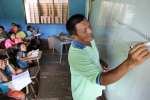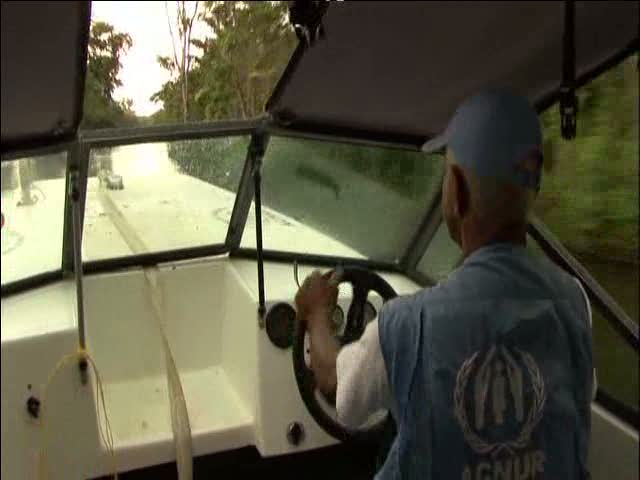- Text size
 |
|  |
|  |
| 
- Français
Venezuela: UNHCR stepping up activities for Colombian arrivals
Briefing Notes, 29 June 2007
This is a summary of what was said by UNHCR spokesperson Ron Redmond – to whom quoted text may be attributed – at the press briefing, on 29 June 2007, at the Palais des Nations in Geneva.
UNHCR is stepping up its activities along Venezuela's border with Colombia to meet the needs of a growing number of people arriving in search of a refuge from violence and armed conflict.
As of this month, we will be running projects from two new locations on the Venezuelan side of the border: Amazonas to the south and a region known as "Sur del Lago" further to the north. The majority of new arrivals in the Amazonas belong to indigenous groups and come from the Colombian regions of Meta, Guaviare and Vichada.
UNHCR intervention in the Amazonas and Sur del Lago will focus at first on conflict-prevention, to reduce the risk of tension that large influxes of people can cause. It will begin with training of the armed forces and civilian authorities in refugee law and human rights. Both projects were made possible with the support of the United Kingdom government, which also backs a similar initiative in the tri-nation border area where Peru, Colombia and Ecuador meet.
On the Colombian side of the border with Venezuela, the humanitarian situation remains of serious concern. The region of Catatumbo to the north and Arauca further to the south last year registered some of the highest rates of forced displacement in the whole of Colombia and the worst indices of targeted killings, landmine accidents and armed fighting.
During a fact-finding mission to Arauca earlier this month, UNHCR found evidence that forced displacement continues on a large scale. The number of new cases recorded in the national system for registration of displaced people tripled last year: from 1,000 in the first six months to 3,000 in the second half of 2006. This number does not include displaced people who do not come forward for registration.
Figures for the first six months of 2007 are not yet consolidated, but local authorities say the numbers keep rising. In the town of Tame, the authorities dealt with 2,500 new cases of displacement between January and May of this year, compared with 1,250 in the whole of 2006. The situation is similar in the rest of Arauca, where the country's two guerrilla groups, the FARC and the ELN, have been fighting for territory since March of last year.
The UNHCR team also heard testimonies of threats, targeted killings and widespread intimidation of the civilian population, especially in rural areas. Many mentioned concern that violence and unrest could increase in the run-up to local elections in October.
Some 2 million people are on the national registry for displaced people in Colombia, with official estimates that another million have been victims of forced displacement but are not registered. UNHCR and the Venezuelan government calculate that some 200,000 Colombians may be in need of international protection in Venezuela. UNHCR has three field offices on the Venezuelan side of the border.









